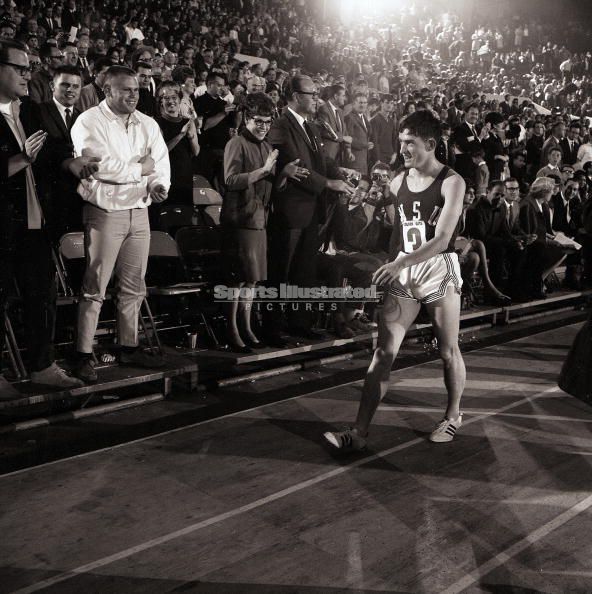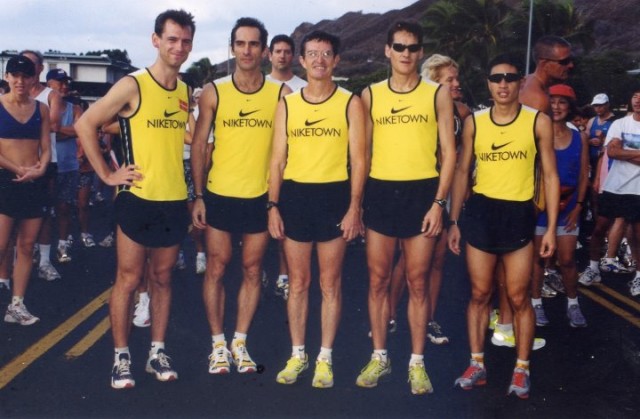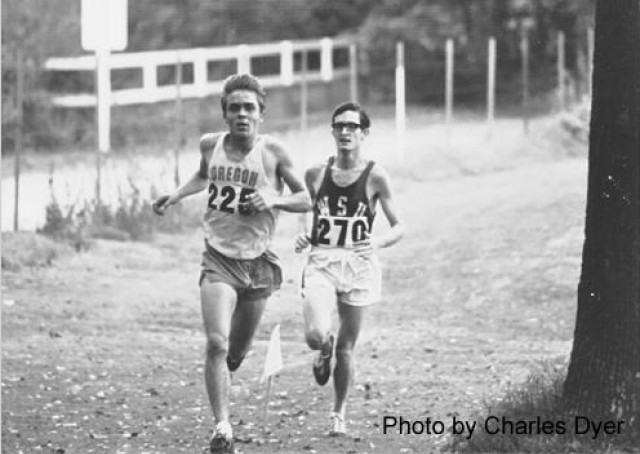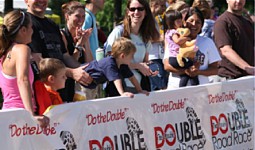UjENA FIT Club Running Interviews and articles with 100 Interesting People
Best Road Races and the UjENA FIT Club is speaking with 100 people who we feel have a lot to say about running, racing and fitness We will give you background information as will as their insights into the future. Be sure to post your feedback and comments.
Read All UjENA FIT Club Running Interviews
Posted Thursday, February 19th, 2015
by Bob Anderson, publisher of Double Runner magazine (Photo Bob Anderson with world record holder Julius Koskei wearing the yellow... Read Interview
Posted Monday, March 17th, 2014
The Chris Jones story is a running saga of epic proportions. Don't try this at home! (Photo - Leadville 100... Read Interview
Posted Sunday, March 23rd, 2014
Aging ever so gracefully at age 59 and forging a career record that becomes ever more impressive, Sharon Vos is... Read Interview
Posted Tuesday, November 5th, 2013
By David Prokop Editor Best Road RacesJulius Koskei (pronounced Kos-kay), who set the current world record in the Double Road... Read Interview
Gerry Lindgren Interview 25
Thursday, March 29th, 2012
"350 miles of running per week will NOT make anyone a great runner"
My first memories of Gerry Lindgren was in 1964 when he won the 10,000m race at the USA/USSR meet in Los Angeles while in high school. It was very inspiring for me. I had just started running and to see what was possible was very exciting. Over the years I featured Gerry many times in Runner's World. I don't think we ever met and then in 1980 he disappeared for many years. Then we came in contact on Facebook a year or so back. I asked Gerry if he would be interested in doing an interview. (Interview by Bob Anderson) 1. What if you never found running? 2. What one thing made you one of the best high school distance runners ever?
4. You ran a 13:44 5k in 1964 while a senior in high school. Through nearly 3 miles we battled each other with Bruce's elbow seeking my ribcage every time I tried to pass him or he passed me. I was so interested in his elbows I did not even think about the race. After almost 11 laps Bruce tired out and slips into last place in the race. I was all alone in the race when the bell sounded to announce the final lap. I started to sprint but then I started thinking that this was a big race. I shouldn't be leading like this. So I slowed and suddenly 7-runners sprinted around me. I came back to life and sprinted after the seven but in the end I could only regain 4th place.
But, Sam Bell, the coach at Oregon State, would later be picked to coach the USA Team for the Russian Meet. He was all impressed with my mid-race sprint and thought maybe, if I could stay with the Russians in that sprint, I could erase the 'Lazy American' image. I finished second behind Bob Schul in the 5K and so I qualified for the Russian meet at 5K. Coach Bell asked me to switch to the 10K instead so I was kinna forced into it (I hated running 10K). The race started and I sat behind the two Russians for 4-miles. When we got closer to the 4-mile mark I got tense knowing that soon the race would start. One of the Russians moved out ahead about 10 yards. I wondered if I should go around this Russian and catch up to the other one or just wait for the sprint. I sprinted just as hard as I could go. I caught up to the front Russian and sped past him into the lead. Fear gripped me. I sprinted the entire lap as was my calling but when I got back to where Coach Bell was standing, I could hear the sound of running shoes hitting the ground. The Russian was right behind me. I couldn't slow back to race pace. Instead I sprinted another lap. The fans in the stand had never seen an American runner leading the Russians and they started screaming. In high school, when people scream someone is going to pass so I pushed hard to show them we were not Lazy Americans. In the end they had not passed and I was on the final straight. I expected them to finally sprint past me but when I hit the tape I was all alone. I looked back down the track but there was nobody there. It was my own feet striking the track that has me is such fear.... 7. You averaged over 240 miles per week for a year. That's a lot of mileage. How did your body handle it? 8. A sprained ankle cost you the gold medal at the 1964 Olympic Games. When I went to the training room that coach was there. Every day he closed off the training room to athletes so the trainers could give him a full body massage and let him sleep for a couple hours undisturbed. My entry woke him up and he was boiling mad. He said I was faking it so I would not have to race. He forbid the trainers from helping me. The Adidas Representative set it up for me to go to a new kind of doctor from Germany; a sports medicine doctor. So I went to the German compound and got treatment there. When the head coach heard that I had gone to the German Doctor he ranted at me once again. I was unpatriotic. I was undermining all America. He again was going to send me home. My high school coach arrived in Japan and had a heart to heart talk with the head coach and there was nearly a fist fight I was told later. An interesting side note. Billy Mills was my room mate. When he came into the room and saw me flat on my back with my foot elevated and iced, his eyes got BIG. "Gerry" He said. "I can win the gold medal. I can win the gold medal". He was hard to live with for the two days before the 10K because he was so excited. With me out, he said, he thought he could beat everyone else (and he did).
10. You mention that "Karma" was a large factor in your running success? 11. You mentioned that a runner should pick one event? What was your event? 12. Were you ready for all the attention running brought you?
Comments and Feedback
 Thanks Gerry for doing this interview...how can anyone ever forget how good of a runner you were in high school. Running a 13:44 5k as a senior. And that was back in the days of cinder tracks and heavy shoes... Thanks Gerry for doing this interview...how can anyone ever forget how good of a runner you were in high school. Running a 13:44 5k as a senior. And that was back in the days of cinder tracks and heavy shoes...Bob Anderson 4/2/12 11:48 pm |
,,,,, |
Photo: Gerry signing numbers at the 3-mile race held in his name March of this year. 15. We are about the same age, in your younger days you could run circles around me. But from what I know, I can run much faster than you now. Why do you think some people slow down more than others with age? 18. You ran over 350 miles in a week before. How did this help you run at world class levels? 19. Do you follow track and field on an international level these days?
20. What was it like running in the Olympic Games? 21. Back in your days there was no such thing as prize money. In fact, if you took money you would not have been able to run in the Olympics. 22. What one thing made you to decide to leave the limelight? 23. I think you moved to Hawaii in 1980? 24. Have you stopped having enormous dreams?
25. What is ahead for you? 26. How important is diet for a runner? 27. What do you think a person should do the day before an important race?
28. What memories do you have racing against Pre? 29. How do you like living in Honolulu? Every morning I wake to the swaying of palm branches; birds sing constantly; The sun shines down on the white sand beaches until I want to cry. I try to get away from it all by running the trails in the mountains behind Honolulu and there too I find no relief. The fragrance of flowers fills the air; more birds with exotic songs everywhere; The jungle trail suddenly opens up on views of the valleys below and the ocean; I scream! Where is the stress? Where is the anxiety that we all fight every day?
|

Copyright 2025 UjENA Swimwear · Site Map · Feedback · Tell A Friend · Nominate a Race
Leaderboard · UjENA 5K · Double Road Race · UjENA Jam · UjENA Network














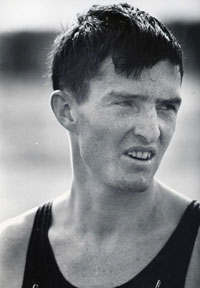 3. Didn't being a "wimp" as you describe yourself help you achieve your success?
3. Didn't being a "wimp" as you describe yourself help you achieve your success? 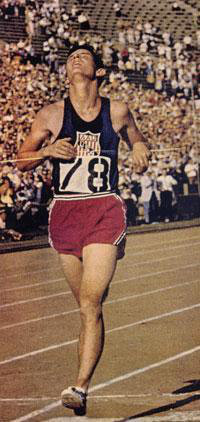 5. I remember watching you on TV when you won the 10,000 at the US/USSR meet in Los Angeles. What an inspiring moment that was for me. When did you realize you could win that race?
5. I remember watching you on TV when you won the 10,000 at the US/USSR meet in Los Angeles. What an inspiring moment that was for me. When did you realize you could win that race? 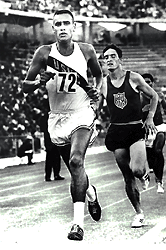 9. You and Billy Mills ran some amazing races together including the 1965 6-mile race were you both ran 27:11.6, a world record at the time.
9. You and Billy Mills ran some amazing races together including the 1965 6-mile race were you both ran 27:11.6, a world record at the time. 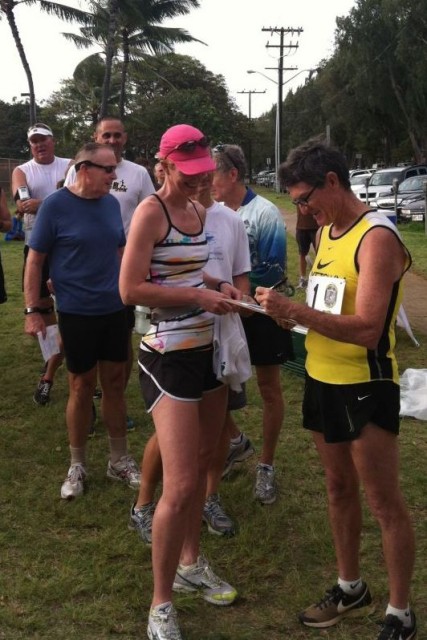
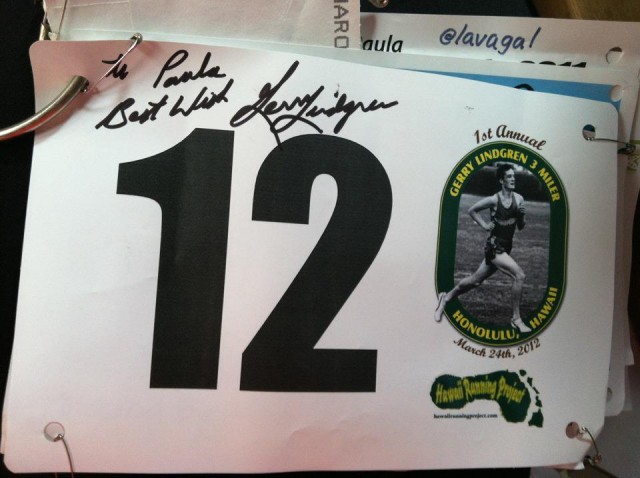 16. Does it bother you that a lot of people don't seem to understand you?
16. Does it bother you that a lot of people don't seem to understand you? 